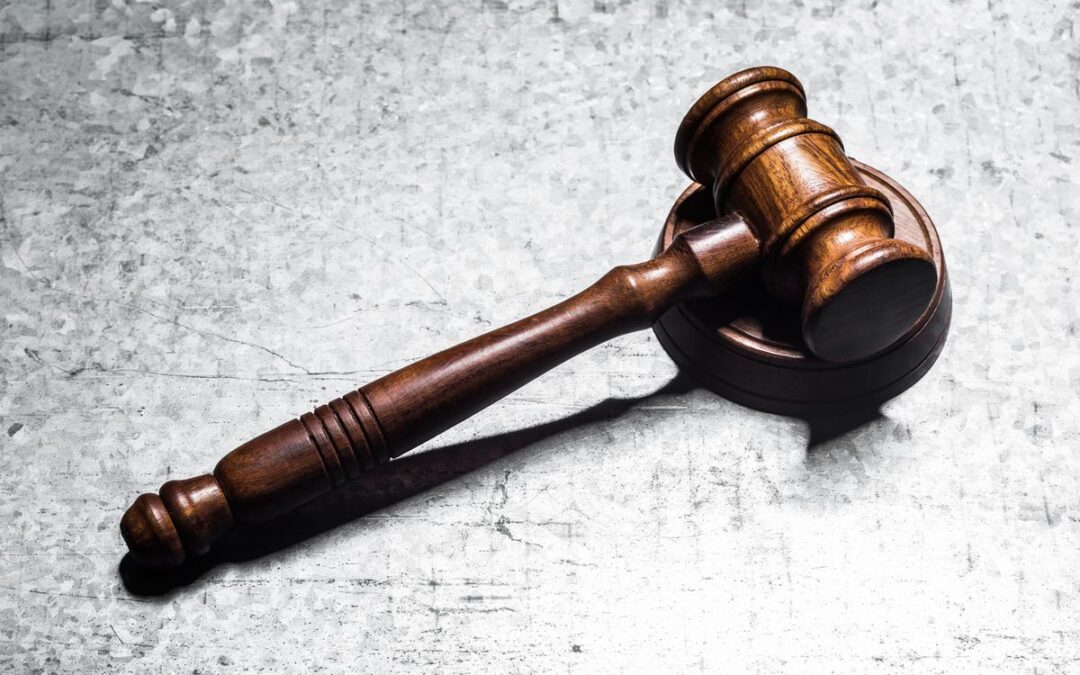Navigating the complexities of personal injury law in Georgia can be a daunting task, especially when faced with widespread misconceptions. These misunderstandings can significantly impact the decisions and actions of those who have suffered personal injuries. In this comprehensive guide, we aim to debunk the most common myths surrounding personal injury law in Georgia, providing clarity and valuable insights to help you understand your rights and the legal process.
Misconception 1: Personal Injury Cases Always End in Court Battles
Many people believe that filing a personal injury claim is a surefire way to receive quick and substantial compensation. This is far from the truth. Personal injury cases in Georgia require thorough investigation, evidence gathering, and legal argumentation. The process can be time-consuming, and the outcome is never guaranteed. Compensation is calculated based on actual losses and damages, such as medical expenses, lost wages, and pain and suffering, rather than being a random windfall.
Understanding the Compensation Process
- Assessment of Damages: In Georgia, the compensation in personal injury cases is based on the actual damages incurred. This includes tangible losses like medical bills and lost wages, as well as intangible losses like pain and suffering. Accurately assessing these damages requires a comprehensive understanding of both the immediate and long-term effects of the injury.
- Negotiation with Insurance Companies: A significant part of the personal injury claim process involves negotiations with insurance companies. These companies are often more focused on minimizing payouts rather than providing fair compensation. Experienced personal injury attorneys in Georgia are skilled in negotiating with these companies to ensure you receive a fair settlement.
- The Role of Evidence: Strong evidence is crucial for a successful personal injury claim. This includes medical records, eyewitness testimonies, accident reports, and sometimes expert testimonies. Gathering and presenting this evidence in a compelling manner is key to proving the extent of your damages and the other party’s liability.
The Reality of Timeframes
- Investigation and Preparation: The initial stages of a personal injury claim involve a detailed investigation and case preparation. This phase can be time-consuming as it involves collecting evidence, consulting with medical professionals, and building a strong legal argument.
- The Litigation Process: If your case goes to litigation, the process can extend over several months or even years. Court schedules, procedural requirements, and the complexity of the case all contribute to the timeframe.
- Settlement Negotiations: While some cases are settled quickly, others may involve prolonged negotiations. The willingness of both parties to compromise and the complexity of the case play significant roles in the duration of these negotiations.
The Myth of Guaranteed Success
- No Guaranteed Outcomes: Despite popular belief, success in a personal injury claim is never guaranteed. Each case is subject to the specifics of the incident, the quality of the evidence, and the skill of the legal representation.
- The Role of Legal Expertise: The expertise of your attorney significantly influences the outcome of your case. An attorney with in-depth knowledge of Georgia’s personal injury laws and strong negotiation skills can increase the likelihood of a favorable outcome.
- Importance of Realistic Expectations: It’s crucial for clients to have realistic expectations regarding the potential outcomes and compensation amounts in personal injury cases. An experienced attorney can provide a realistic assessment based on the specifics of your case.
Misconception 2: Any Attorney Can Handle a Personal Injury Case
While it’s true that any licensed attorney can legally represent you in a personal injury case, not all attorneys are equally equipped to do so. Personal injury law is a specialized field that requires specific knowledge and experience. In Georgia, attorneys who focus on personal injury law are more likely to be up-to-date with the relevant state laws, case precedents, and nuances of such cases. Choosing a Georgia attorney with specialized experience in personal injury law can significantly impact the outcome of your case.

Misconception 3: Personal Injury Claims Lead to Quick and Easy Money
Many people believe that filing a personal injury claim is a surefire way to receive quick and substantial compensation. This is far from the truth. Personal injury cases in Georgia require thorough investigation, evidence gathering, and legal argumentation. The process can be time-consuming, and the outcome is never guaranteed. Compensation is calculated based on actual losses and damages, such as medical expenses, lost wages, and pain and suffering, rather than being a random windfall.
Assessment of Damages
- Tangible Losses: In Georgia, compensation often covers medical expenses, rehabilitation costs, and lost wages. These are quantifiable and need to be documented meticulously.
- Intangible Losses: Compensation for pain and suffering, emotional distress, and loss of enjoyment of life falls under this category. These are subjective and harder to quantify, requiring expert legal handling to ensure fair valuation.
Negotiation with Insurance Companies
- Initial Offers: Insurance companies often start with low settlement offers. Understanding their tactics and negotiating effectively is crucial.
- Maximizing Settlements: An experienced attorney can negotiate a settlement that more accurately reflects the true value of your claim, considering both current and future impacts of your injury.
The Role of Evidence
- Gathering Evidence: This includes medical records, accident reports, witness statements, and sometimes expert testimonies.
- Presenting a Strong Case: Compelling presentation of evidence is key to proving the extent of your damages and the other party’s liability.
Misconception 4: Minor Injuries Don’t Warrant a Personal Injury Claim
Even minor injuries can have significant consequences and deserve legal attention. In Georgia, you have the right to seek compensation for any injury caused by another’s negligence, no matter how small it may seem. Minor injuries can sometimes lead to more significant health issues over time. It’s important to get a thorough medical evaluation and consider legal advice to understand the full scope of your rights and potential compensation.
The Long-Term Impact of Minor Injuries
Delayed Symptoms
- Not Immediately Apparent: Some injuries, like whiplash or internal bruising, may not show symptoms immediately. It’s crucial to monitor your health closely following an accident.
- Progression of Injuries: What starts as a minor discomfort can escalate into chronic pain or long-term disability, impacting your quality of life and ability to work.
Medical Documentation
- Importance of Early Evaluation: Seeking prompt medical attention ensures that your injuries are properly documented from the outset. This documentation is vital for any future legal claims.
- Ongoing Medical Care: Regular follow-ups are important, as they can reveal the progression of your injury and provide a more comprehensive understanding of your condition.
Legal Considerations for Minor Injuries
Understanding Your Rights
- Right to Compensation: In Georgia, the law entitles you to compensation for any injury caused by negligence, regardless of its initial severity.
- Comprehensive Legal Review: Consulting with a personal injury attorney can help you understand the full extent of your legal rights and options.
Filing a Claim for Minor Injuries
- Statute of Limitations: Be aware of the time limits for filing a personal injury claim in Georgia. Even for minor injuries, it’s important to act within the legal timeframe.
- Proving Negligence: Demonstrating the other party’s negligence is crucial, regardless of the injury’s size. Evidence such as accident reports, witness statements, and medical records are key.
Compensation for Minor Injuries
Calculating Damages
- Economic Damages: These include medical expenses, lost wages if you had to take time off work, and any other out-of-pocket expenses related to the injury.
- Non-Economic Damages: You may also be entitled to compensation for pain and suffering, even if the injury was minor. This acknowledges the emotional and psychological impact of the injury.
Misconception 5: You Have Plenty of Time to File a Claim
Georgia, like all states, has a statute of limitations for personal injury claims. This law limits the time within which you can legally file a claim following an injury. In Georgia, the statute of limitations is generally two years from the date of the injury. Waiting too long can result in losing your right to seek compensation. It’s crucial to be aware of these time limits to ensure your claim is filed in a timely manner.
Misconception 6: You Can’t Afford a Personal Injury Attorney
Many people are deterred from seeking legal assistance due to concerns about the cost. However, most personal injury attorneys in Georgia work on a contingency fee basis. This means they only get paid if you win your case or receive a settlement. This arrangement makes legal representation more accessible, as it does not require upfront payment and aligns the attorney’s interests with your own. At Rebecca Kay Sapp Law firm we also provide a no risk free consultation about your car accident before you sign wit us.

Misconception 7: Worker’s Compensation is the Only Option for Work-Related Injuries
While worker’s compensation is a common route for handling work-related injuries in Georgia, it’s not always the only option. If your injury was caused by a third party’s negligence or a defective product, you might have grounds for a personal injury claim in addition to a worker’s compensation claim. Exploring all avenues can ensure you receive the full compensation you’re entitled to.
Understanding the Dual Pathways of Compensation
Worker’s Compensation in Georgia
- Immediate Coverage: Worker’s compensation typically covers medical expenses and a portion of lost wages, regardless of fault.
- Limitations: It does not, however, compensate for pain and suffering or full loss of wages, and it bars lawsuits against employers in most cases.
Personal Injury Claims
- Broader Compensation: A personal injury claim can seek compensation beyond what is covered by worker’s compensation, including full lost wages, pain and suffering, and punitive damages in cases of gross negligence.
- Fault-Based System: Unlike worker’s compensation, a personal injury claim requires proving that someone else’s negligence caused your injury.
When to Consider a Personal Injury Claim
Third-Party Liability
- Examples: If your injury was caused by a faulty piece of equipment, a negligent contractor, or a third party’s actions at your workplace, you may have a claim against those parties.
- Separate Legal Action: This claim is separate from worker’s compensation and can be pursued concurrently.
Defective Products
- Manufacturer Liability: If a defective product in the workplace caused your injury, you might have a claim against the product’s manufacturer or distributor.
- Product Liability Claims: These claims can provide compensation for injuries that worker’s compensation may not fully cover.
Misconception 8: Personal Injury Claims are Always Against Individuals
Many personal injury claims in Georgia are filed against businesses or organizations, not just individuals. If your injury was caused by a defective product, a business’s negligence, or an unsafe property condition, the responsible party could be a company or a government entity. Understanding who can be held liable is crucial for directing your claim appropriately.
Misconception 9: You Must Go to Court to Receive Compensation
Settlements are a common outcome in personal injury cases in Georgia. Many cases are resolved through negotiations between your attorney and the at-fault party’s insurance company. These negotiations can lead to a fair settlement without the need for a court trial. An experienced personal injury attorney can guide you through this process, aiming to secure the best possible outcome outside of court.
The Settlement Negotiation Process
Initial Assessment and Demand
- Case Evaluation: Your attorney will begin by thoroughly evaluating the merits of your case, including the extent of your injuries, the liability of the at-fault party, and the impact on your life.
- Demand Letter: Based on this evaluation, your attorney will draft a demand letter to the at-fault party’s insurance company, outlining your case and the compensation sought.
Negotiation Tactics
- Counteroffers: The insurance company will likely respond with a counteroffer, which is typically lower than your initial demand. This begins the negotiation process.
- Strategic Bargaining: Your attorney will use their expertise to strategically counter these offers, aiming to reach a settlement amount that adequately compensates for your losses.
Understanding the Value of Your Claim
Calculating Damages
- Economic Damages: This includes tangible losses such as medical expenses, lost wages, and property damage.
- Non-Economic Damages: These are more subjective and include pain and suffering, emotional distress, and loss of enjoyment of life.
Factors Influencing Settlement Value
- Severity of Injuries: More severe injuries typically result in higher settlements.
- Impact on Quality of Life: How the injury affects your daily life and future prospects plays a significant role in determining the settlement value.
- Evidence of Liability: Strong evidence of the other party’s fault increases the likelihood of a higher settlement.
The Role of a Personal Injury Attorney in Settlement Negotiations
Advocacy and Expertise
- Representation: An experienced attorney represents your interests, ensuring that the negotiation process is fair and that you are not pressured into accepting a low offer.
- Legal Knowledge: They bring a deep understanding of Georgia’s personal injury laws and how they apply to your specific case.
Maximizing Your Settlement
- Leveraging Evidence: Your attorney will leverage all available evidence to strengthen your position in negotiations.
- Avoiding Pitfalls: They can help you avoid common pitfalls, such as saying something that could be used against you or accepting a quick settlement that undervalues your claim.
Conclusion
Understanding the realities of personal injury law in Georgia is crucial for anyone facing the aftermath of an injury. Dispelling these common misconceptions can empower you to make informed decisions and seek the compensation you rightfully deserve. Remember, each personal injury case is unique, and consulting with a qualified Georgia personal injury attorney can provide you with personalized guidance tailored to your specific situation.
By addressing these misconceptions, we hope to have provided clarity and useful information to help you navigate the often-misunderstood world of personal injury law in Georgia. Remember, knowledge is power, especially when it comes to protecting your legal rights and interests.

